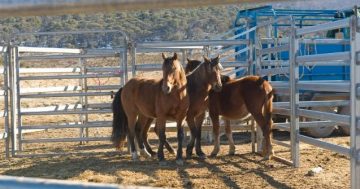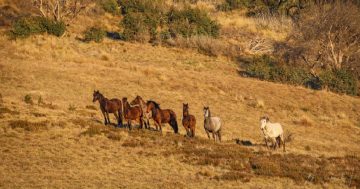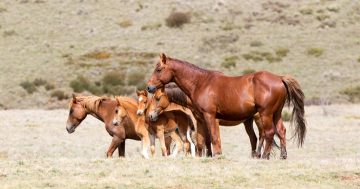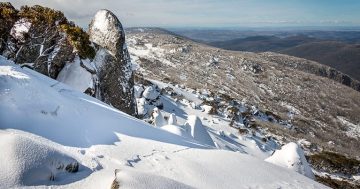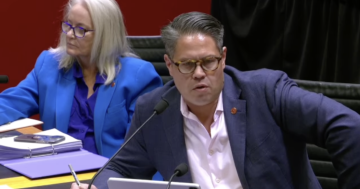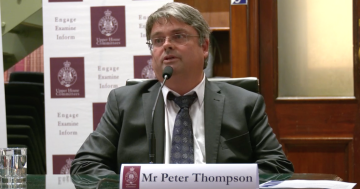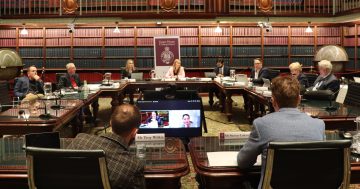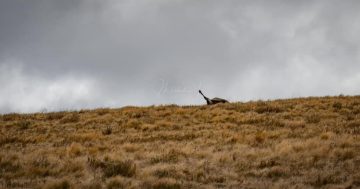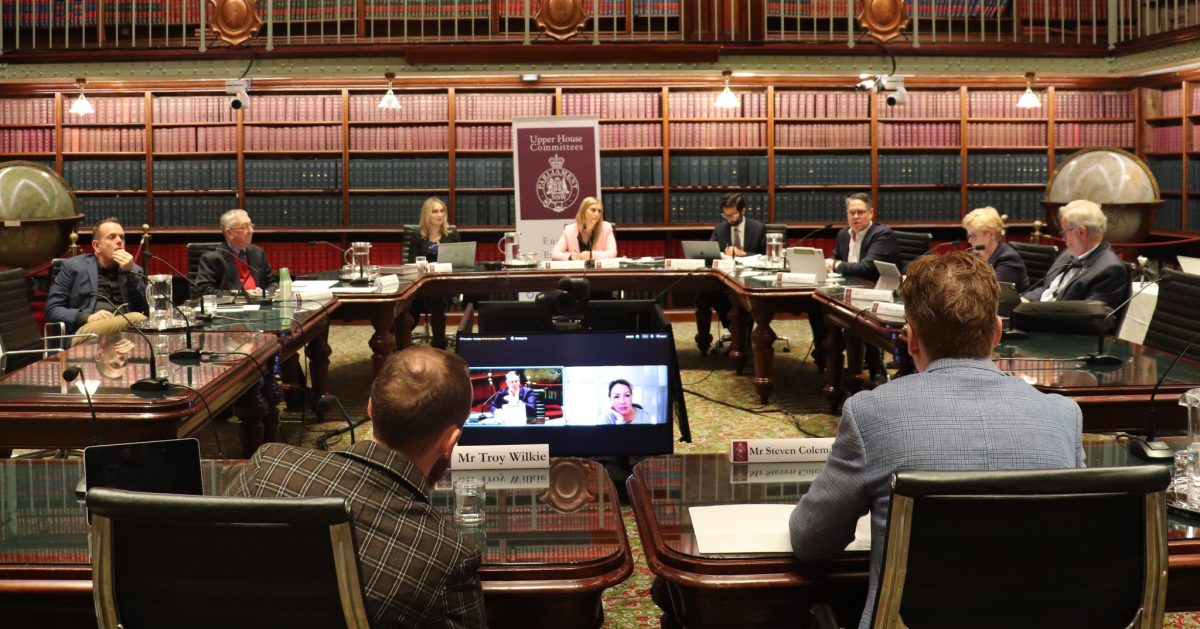
Last week’s NSW Upper House inquiry heard a departmental investigation had cleared an NPWS staff member of misconduct in the face of allegations they had supplied 260 wild horses under the department’s rehoming program to an alleged illegal knackery in Wagga Wagga. Photo: Wes Fang/Facebook.
An independent probe into allegations of collusion between a National Parks and Wildlife Service (NPWS) staff member and a man accused of operating an alleged illegal knackery near Wagga Wagga has determined there was no misconduct on the part of the employee, a NSW Upper House inquiry has heard.
Initiated in response to allegations first aired by 2GB broadcaster Ray Hadley, the investigation was launched following the discovery of more than 500 horse carcasses in a creek bed on private property near Wagga Wagga in April.
Last week the NSW Upper House Parliamentary inquiry into the aerial shooting of brumbies in Kosciuszko National Park (KNP) heard 260 wild horses which had been trapped in KNP as part of the State Government’s culling program, and intended for rehoming, had been provided to Wagga Wagga horse trader Adrian Talbot, the man accused of operating the alleged knackery.
Appearing before last week’s NSW Upper House inquiry into the aerial shooting of brumbies, NSW Environment Minister Penny Sharpe confirmed a serious internal investigation of the allegations had taken place.
The source of the allegation was requested, but declined to provide further information, she said.
Conducted by a private company, the investigation involved a comprehensive review of electronic and phone records and interviews with affected staff, among other inquiries, the minister said.
Ms Sharpe said she understood the NPWS had found only one unaccounted-for horse, out of around 2760 trapped since 2019.
“Multiple staff are required and present when trapping occurs, and detailed records are kept of trapping activity, making it very difficult for one staff member to ever act alone,” she told the inquiry.
Furthermore, she said the staff member against whom the allegation was made had no involvement in decisions to allocate horses to re-homers.
“The horses are provided free of charge and are obtained when requested and if available, suggesting there is no incentive to make any improper payments,” Ms Sharpe said.
“Given the nature of the program outlined and the processes in place, it is highly unlikely that conduct as alleged would or could occur, but, beyond that, there has been a serious investigation that I believe has cleared that staff member.
“The allegations have been comprehensively considered and the matter has now been closed by the department,” she told the inquiry.
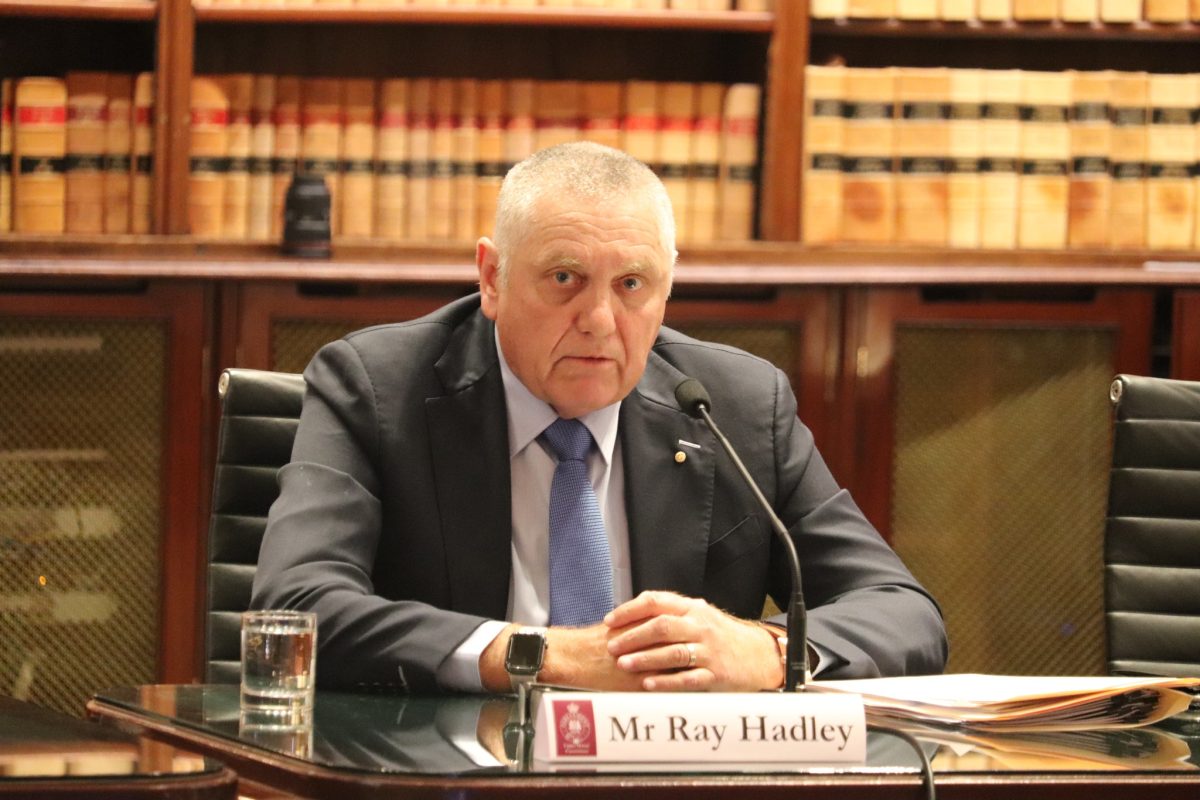
Broadcaster Ray Hadley also appeared before last week’s Upper House inquiry. Photo: Wes Fang/Facebook.
Wagga-based MLC Wes Fang asked the minister if it was normal for somebody to receive 10 per cent of the rehomed horses in the program.
Ms Sharpe said that was part of a broader Department of Climate Change, Energy, the Environment and Water (DCCEEW) investigation of the NPWS Wild Horse Rehoming Program, its report expected to be handed down on 14 June, “but it appears that, yes, that has been the way that it has occurred”.
Ms Sharpe said further suggestions that horses in KNP were being trapped and made available to other parties outside the NPWS Rehoming program would form part of the larger DCCEEW investigation.
“What I would say is that any allegations of wrongdoing I take extremely seriously. When allegations have come, where I’ve been aware, I have passed them on to the department. If they’re coming up through a different way, I can’t speak for that, but my department is under no illusion that all allegations are to be thoroughly examined, investigated and reported upon,” she said.
The minister also expressed concerns about the lack of oversight of the rehoming program and the failure of government agencies to share information.
“If one agency stumbles across something that is wrong, they should be required – and we should have good, strong data sharing that would say, ‘Look, there is a red flag here. Do you have any exposure here? Are you involved? Maybe you need to have a look at it’. I don’t want to speculate too much, but to me it looks like we’re heading towards an important tightening of the rules around rehoming, what happens post rehoming and data sharing. On how far or what the detail is, I would wait for the review to get that.”
Ray Hadley, who also appeared before the inquiry, said it was incomprehensible rehomers, who contacted him, were offering to take 20 brumbies but were told they were unavailable.
“I couldn’t quite understand that because if one bloke can get 260, how can some bloke in Queensland not get 20 or some bloke in West Wyalong not get three?” he said.
Mr Hadley said he feared the wild horses had been targeted for black market-style trading.
“… It’s a fairly lucrative enterprise, dog meat, particularly in the greyhound industry. You’d like to think that there wasn’t a drink somewhere along the line for someone at National Parks and Wildlife; you’d like to think that. You’d like to put people above all that, but whether you can or not is another matter. That will be, no doubt, part of the investigation that Minister Sharpe’s encountered now.”







